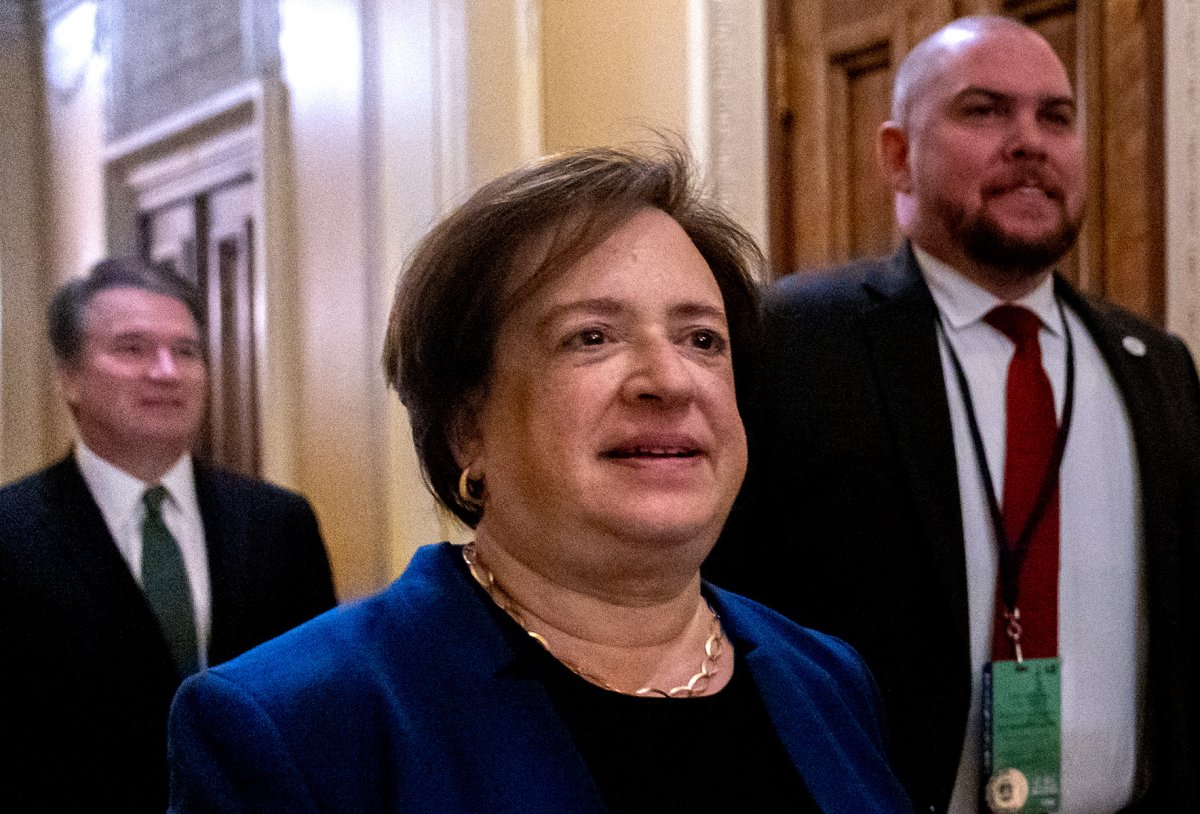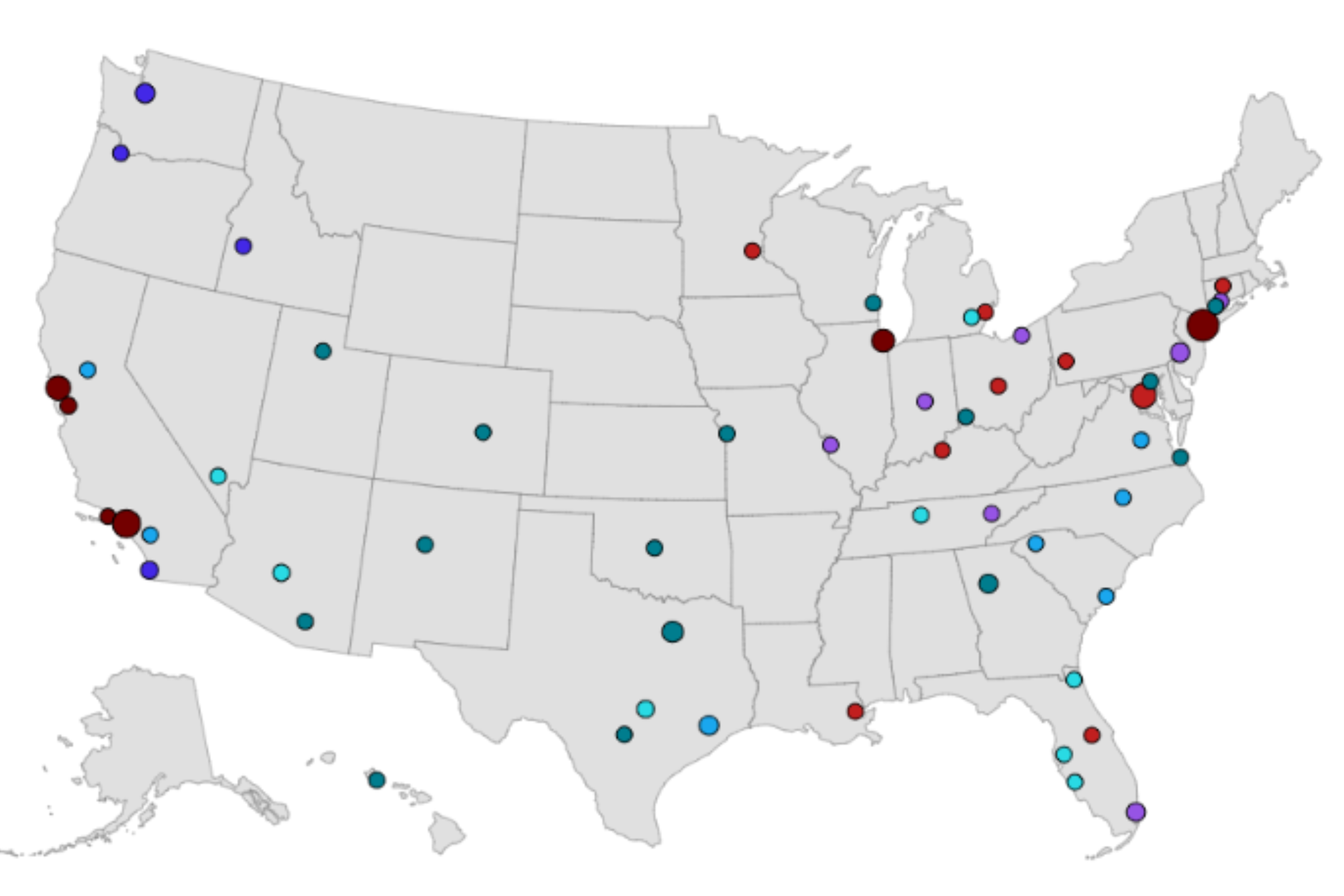A Supreme Court denial of a rehearing is creating buzz online after Justice Elena Kagan recused herself from Holland v. Florida, and then provided a reason as to why.
In Holland v. Florida, Florida death row inmate Albert Holland, who was convicted for the fatal shooting of police officer Scott Winters, filed a request for a rehearing after the Supreme Court denied granting a writ of certiorari in his case in March.
Kagan's recusal, which she said was due to "prior government employment," comes almost a month after Chief Justice John Roberts denied a request from Senator Dick Durbin, an Illinois Democrat, for Roberts to appear before the Senate Judiciary Committee for an ethics hearing on May 2. In his denial, Roberts attached a multi-page "Statement on Ethics Principles and Practices" at the conclusion of which all nine justices signed.
Supreme Court ethics have been criticized in recent months after a recent report surfaced detailing how Justice Clarence Thomas enjoyed vacations and luxurious accommodations by a top GOP donor without disclosing them, after the public learned that Justice Neil Gorsuch sold a property he co-owned to a law firm that frequently argued cases before the Supreme Court and after Roberts' wife's work as a legal recruiter. Meanwhile, the topic of ethics at the nation's highest court have divided Americans—often along party lines—with Senate Democrats promising to pursue stronger ethics rules for the Court.

However, Kagan's recent explanation amid the ethics controversy has people speculating as to why the justice provided a reason for her recusal in Holland v. Florida.
Since the start of the year, Supreme Court justices have recused themselves from 47 orders. Kagan's recusal on Monday was the only time a justice provided a reason as to why they did not take part in the Court's decision.
Law experts and other users on Twitter were quick to speculate, pondering Kagan's decision to provide a reason.
Slate court and law reporter Mark Stern suggested perhaps there was a new policy or the decision was to Kagan's preferences, although Kagan has not provided a reason for her recusals in other instances since the start of the year.
"Could be a Kagan thing or could be a new policy silently introduced. I'm asking the court," Stern tweeted.
The biggest news in the Supreme Court's orders list today is that Justice Kagan offered an explanation for her recusal in a case. Justices do not typically explain their decision to recuse. Could be a Kagan thing or could be a new policy silently introduced. I'm asking the court. https://t.co/eNqXbPHRPa
— Mark Joseph Stern (@mjs_DC) May 22, 2023
Lawyer Miz Jenkins tweeted that Kagan—one of only three liberals on the Supreme Court—could be attempting to set an example amid the ethics controversy.
Not a new policy so much as an attempt to set an example (and perhaps quietly shame those who don’t follow suit).
— Miz Jenkins (@TheChangeU12C) May 22, 2023
However, lawyer Sean Marotta chalked Kagan's reason for her recusal up to the recent "Statement on Ethics Principles and Practices."
"For those noting Justice Kagan noting the reason for her recusal this morning, this was an innovation previewed in the Justices' recent Statement on Ethics Principles and Practices," he tweeted Monday.
For those noting Justice Kagan noting the reason for her recusal this morning, this was an innovation previewed in the Justices' recent Statement on Ethics Principles and Practices. #AppellateTwitter pic.twitter.com/ayEFP0FqJX
— Sean Marotta (@smmarotta) May 22, 2023
In the "Statement on Ethics Principles and Practices," the justices acknowledge that recusals are not a rare event—approximating 200 recusals at the certiorari stage and a few at the merits stage per year. The statement also said that recusals are obvious in many instances, such as due to a justice's prior employment as a circuit judge or in the Office of the Solicitor General. In some cases, the statement added, publicly disclosing the reason for a recusal is "ill-advised."
"Where these concerns are not present, a Justice may provide a summary explanation of a recusal decision, e.g., 'Justice X took no part in the consideration or decision of this petition. See Code of Conduct, Canon 3C(1)(c) (financial interest)' or 'Justice Y took no part in the consideration or decision of this petition. See Code of Conduct, Canon 3C(1)(e) (prior government employment')," the statement said.
Newsweek reached out to the Supreme Court through an online contact form for comment.
Uncommon Knowledge
Newsweek is committed to challenging conventional wisdom and finding connections in the search for common ground.
Newsweek is committed to challenging conventional wisdom and finding connections in the search for common ground.
About the writer
Anna Skinner is a Newsweek senior reporter based in Indianapolis. Her focus is reporting on the climate, environment and weather ... Read more
To read how Newsweek uses AI as a newsroom tool, Click here.








